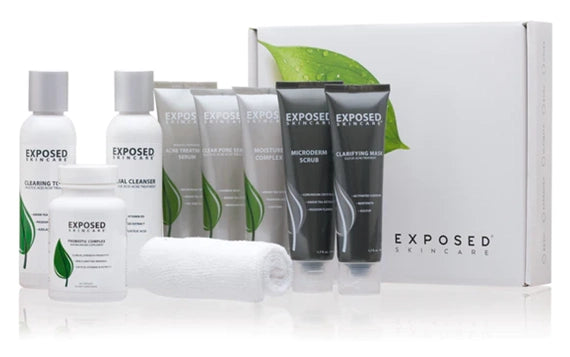Tiny acne bumps are not only an aesthetic concern but can also become painful or itchy. You're in the right place if you are wondering how to get rid of small acne bumps.
This comprehensive guide delves into what causes these bumps, why traditional acne treatments may not work, and three foolproof tricks to smooth out your skin once and for all.
Also read: How to choose the best acne treatment
Biggest Take-Aways:
- Understanding your type of acne is crucial for effective treatment.
- Results from an acne treatment regimen can take several weeks to become noticeable.
- Preventive skin care routines that focus on the root causes of acne, like dead skin cells and clogged pores, are usually more effective than quick fixes.
- Exposed Skin Care offers a comprehensive range of products designed to treat various types of acne effectively.
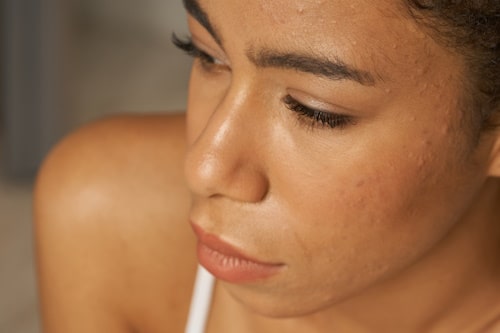
Understanding the Challenge: What Are Small Acne Bumps?
Before diving into the solutions, we must understand what we're up against. Small acne bumps, often called forehead bumps, pustules, or cysts, differ from common skin conditions like inflamed pimples or blackheads.
What Sets Them Apart?
- Size: Small bumps are usually less than 5mm in diameter.
- Color: They may range from skin-colored to red bumps.
- Texture: Unlike pustules or inflamed pimples, these bumps aren't usually filled with pus.
Common Causes of Forehead Bumps
Understanding the causes of forehead bumps or small bumps on the forehead can help in their effective treatment.
- Dead Skin Cells and Oil: The most common cause is accumulating dead skin cells and oil, which clog pores.
- Irritation: Products that irritate the skin can contribute to acne and small bumps.
- Excess Sebum Production: Sebum, a natural oil produced by the skin, can cause acne when produced in excess.
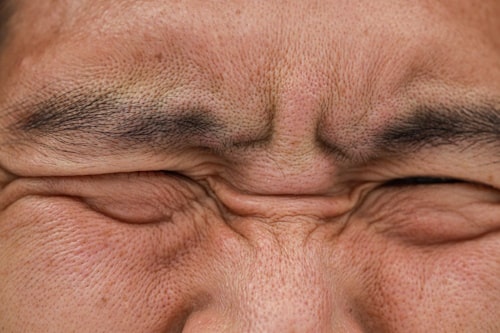
Tip 1: Proper Cleansing Routine
If you have ever thought about how to get rid of small acne bumps, the chances are that you've tried a bunch of skin care products. However, the key to eliminating small forehead bumps starts with the right cleansing routine.
Choose the Right Cleanser
The first step in any acne treatment plan is choosing an effective but not overly harsh cleanser. Look for products that contain salicylic acid or benzoyl peroxide, ingredients proven to unclog pores and reduce inflammation.
Wash Your Face Properly
- Wet your face with lukewarm water.
- Apply a dime-sized amount of cleanser.
- Gently massage in a circular motion.
- Rinse thoroughly and pat dry with a clean towel.
Be Consistent
Consistency is key when trying to get rid of small bumps. Stick to a routine, washing your face twice daily—once in the morning and once before bed.
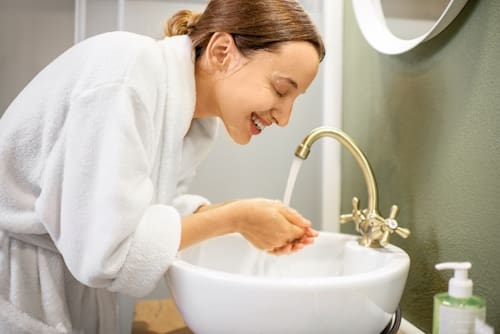
Tip 2: Targeted Treatments for Acne Bumps
Spot Treatments
Directly applying spot treatments like benzoyl peroxide or salicylic acid to the skin can be effective. These ingredients penetrate deep into the pores and dissolve dead skin cells and oil buildup, treating both acne and small bumps.
Chemical Exfoliation
Chemical exfoliants like salicylic or glycolic acid remove dead skin cells clogging pores. These can be in the form of toners, serums, or peels.
Face Masks for Specific Skin Types
Depending on your skin type, certain face masks may help manage acne vulgaris.
- Clay Masks: Good for oily and acne-prone skin.
- Charcoal Masks: Great for detoxifying your skin.
- Hydrating Masks: Ideal for sensitive skin.
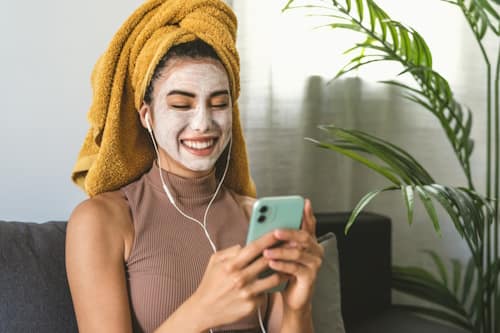
Tip 3: Maintain and Prevent
Don't forget about prevention and maintenance while figuring out how to get rid of small acne bumps.
Avoid What Doesn’t Work
- Irritating Ingredients: Avoid using products with ingredients that may irritate the skin.
- Oily Products: Clog pores and contribute to acne.
- Over-exfoliating: This can damage the skin and make acne worse.
Hydration is Key
Maintaining healthy skin involves proper hydration. While it may seem counterintuitive, even oily skin needs moisturizing to balance sebum production. Choose a non-comedogenic moisturizer that won't clog pores.
Sun Protection
Excess sun exposure increases the risk of skin cancer and exacerbates existing skin conditions like acne. Using a broad-spectrum sunscreen can prevent skin cancer and keep your skin clear.
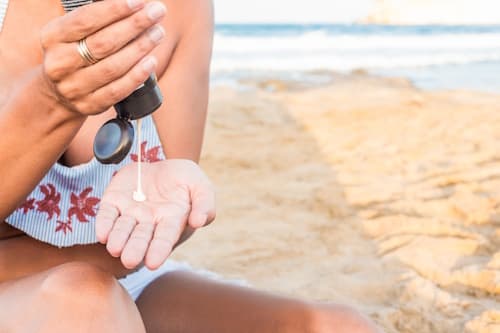
Additional Tips for Achieving Clear Skin
A multi-pronged approach works best When it comes to getting rid of small acne bumps. Here are some additional pointers that can significantly improve your skin condition.
- Healthy Diet: Foods rich in antioxidants, vitamins, and minerals contribute to radiant skin.
- Regular Exercise: Sweating helps clear the pores, but remember to shower immediately to wash off the excess oil and dead skin.
- Stay Hydrated: Drinking plenty of water helps flush out toxins and can assist in maintaining healthy skin.
Benefits of Using Exposed Skin Care to Manage Acne
When dealing with pesky acne, Exposed Skin Care offers a comprehensive line of products uniquely formulated to treat various skin disorders, including all types of acne—be it whiteheads, redness, or even severe acne.
Here are some key advantages of Exposed Skin Care:
- Fast Action: Get rid of pimples fast with products like the Treatment Serum, which directly targets the follicle, helping you eliminate tiny forehead bumps and other acne-related issues.
- Multi-faceted Treatment: Unlike home remedies that may help to some extent, Exposed Skin Care products are developed in compliance with strict sourcing guidelines and backed by academic research institutions. They treat acne at its root, eliminating dead skin cells that can clog pores.
- Scar Prevention: The Clear Pore Serum can help prevent acne scars by reducing inflammation and promoting healthy skin turnover.
- Long-term Solutions: Consistent use can prevent acne from returning, meaning you won't have to deal with itchy bumps, redness and bumps, or damaged skin that may develop without treatment.
- Effective for All Skin Types: Whether you experience forehead acne or bumps with acne in other areas, these products are suitable for certain types of skin and have been known to deliver results in several weeks.
Choosing Exposed Skin Care can provide an effective way to treat pimples, exfoliate your skin to let it breathe, and give you a comprehensive solution for many skin issues.
Conclusion
Understanding the unique challenges posed by different types of acne is crucial for selecting the best treatment approach. Whether you're dealing with tiny forehead bumps, redness, or more severe forms of acne, a comprehensive skincare routine can make all the difference.
Remember, remedies may help to some extent, but targeted treatments that are applied directly to the skin are usually more effective for consistent and long-lasting results. It's worth noting that results can take several weeks to become noticeable.
Skin renewal and unclogging of pores are gradual, so patience is key. Over time, you'll likely see a significant reduction in various blemishes, including those pesky bumps called pustules or cysts.
While experience shows that many people who experience acne tend to gravitate toward quick fixes, it's crucial to focus on treatments that address the root causes, like dead skin cells and excess oil that cause the skin to become blocked and develop acne.
An all-encompassing skincare routine that is designed for your skin type can help in tackling the problem at its core. When it comes to maintaining healthy skin, prevention is equally important.
Adopting a skincare routine that prevents pores from clogging can prevent future breakouts and help maintain clear, healthy skin. Opt for gentle products on the skin and cause minimal irritation to avoid exacerbating the issue.
If you're looking for a comprehensive, proven, and effective skincare solution, Exposed Skin Care offers a range of products designed to treat and prevent acne. Their offerings are tailored to meet the skincare needs of individuals who experience various forms of acne, providing an effective way to get rid of those troublesome bumps once and for all.
FAQs
What types of acne are there?
There are several types of acne, including whiteheads, blackheads, pustules, and cysts.
How long does it usually take to see results from acne treatment?
Results may vary but usually take several weeks to become noticeable.
Do home remedies work for treating acne?
Home remedies may offer temporary relief but often don't address the root causes of acne, like dead skin cells and clogged pores.
Can I prevent acne?
Yes, preventive measures like a consistent skincare routine can help maintain clear skin and prevent pores from becoming blocked.
What's the importance of treating acne directly on the skin?
Applying treatment directly to the skin is usually more effective for targeted and long-lasting results.
What products does Exposed Skin Care offer for acne treatment?
Exposed Skin Care offers a range of products designed to treat and prevent acne, providing a comprehensive skincare solution.












